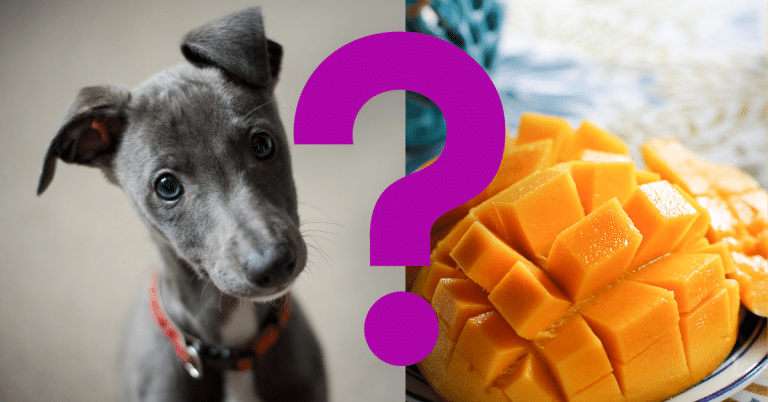Can Dogs Eat Cashew Nuts? A Vet’s Opinion

Cashew nuts are kidney-shaped seeds from the cashew tree that are often eaten as a snack or as an ingredient in various cuisines. But can you feed Cashew nuts to your dog?
Although cashew nuts are not poisonous to dogs, they are not recommended. High fat intake can cause digestive problems, pancreatitis, and obesity. Furthermore, cashew seasoning or salt can be dangerous. It’s better to avoid offering cashews to dogs and instead give them dog-friendly snacks. Always consult a veterinarian before adding new items to your dog’s diet.
Benefits of Cashew nuts for dogs
In moderation and without added salt or flavor, cashew nuts may provide potential health benefits to dogs. However, it is essential to note that dogs have different nutritional needs than people, and their diets should predominantly consist of food created for their specialized needs.

Protein and Healthy Fats
Cashew nuts include protein and healthy fats, which can help a dog’s energy and muscle development. Protein is required for tissue repair and growth, making it an essential part of a dog’s diet.
Vitamins and minerals
Cashews include vital vitamins and minerals such as vitamins E, K, and B-6 and iron, magnesium, zinc, and phosphorus. These nutrients can help a dog’s immune system, bone health, and various physiological activities.
Antioxidants
Cashew nuts include antioxidants such as selenium and flavonoids. Antioxidants aid in the fight against free radicals in the dog’s body, potentially lowering the risk of chronic diseases and improving overall health.
Heart health
When provided in moderation, the monounsaturated and polyunsaturated fats in cashews can benefit a dog’s heart health. These good fats aid in cholesterol management and minimize the risk of heart disease.
Before introducing new food to your dog’s diet, consult a veterinarian to confirm it is safe and appropriate for their unique needs and health.
How to safely give Cashew nuts to dogs
While cashew nuts can be fed to dogs in moderation and provide some nutritional benefits, it is critical to follow safe practices to protect your dog’s safety and health.
Plain, unsalted, and unseasoned cashew nuts
Only offer your dog plain, unsalted, and unseasoned cashew nuts. Cashews with additional salt, spices, or flavorings should be avoided since they can harm dogs, causing symptoms such as increased thirst, vomiting, diarrhea, or sodium ion poisoning.
Moderation is essential
Cashew nuts should only be fed to dogs in small amounts. They are high in fat and calories, contributing to weight gain and other health problems if consumed excessively. Limit the amount based on your dog’s size, weight, and general diet.
Size and Chewing Ability
Ensure your dog’s cashews are the correct size to avoid choking concerns. To lessen the risk of choking, split the cashew into smaller pieces if your dog is little or has difficulties chewing.
Introduce gradually
Gradually introduce cashews to your dog if he has never tried them before. Begin with a tiny bit and watch how your dog reacts. Keep an eye out for symptoms of allergies, stomach discomfort, or bad reactions.
Monitor for adverse reactions
Monitor for allergic responses such as itching, swelling, hives, difficulty breathing, or gastrointestinal difficulties. If you see any adverse effects, discontinue the cashews and visit your veterinarian.
Consult Your Veterinarian
Before incorporating cashews into your dog’s food, speak with your veterinarian. They may advise you on quantity quantities and whether cashews are appropriate for your dog, given their breed, health condition, and dietary needs.
Incorporate Cashews into a Balanced Diet
Cashews should not be used as a replacement for a well-balanced dog food diet. They can be used as a treat occasionally but should be a manageable amount of your dog’s usual food diet. Ascertain that your dog’s main diet satisfies their nutritional requirements.
Check for Digestive Issues
After giving your dog cashews, keep a check on their digestive health. If you detect any gastrointestinal problems, such as vomiting, diarrhea, or pain, avoid administering cashews in the future.
Keep Cashews Safe
Keep cashews safe where your dog cannot get to them. Some dogs may be tempted to stalk the pantry or countertop for food, and excessive cashew consumption can result in health problems.
When feeding your dog cashews or other human food, always prioritize their health and safety by following these instructions.
Will Cashew nuts make a dog sick?
If fed in an unsuitable or excessive amount, cashew nuts can make a dog sick. The following are some of the potential illnesses or unpleasant responses that may arise in dogs after consuming cashew nuts:
Gastrointestinal distress
Cashew nuts are heavy in fat, which can cause digestive issues like vomiting, diarrhea, abdominal pain, and discomfort, especially in dogs with sensitive stomachs or are prone to gastrointestinal problems.
Pancreatitis
The high-fat content of cashew nuts can cause pancreatitis or pancreatic inflammation. This illness can cause severe abdominal discomfort, vomiting, and diarrhea, which can be fatal in certain situations.
Allergic Reactions
Just like humans, dogs can develop allergies to specific foods, including cashews. Itching, skin redness, hives, swelling of the face, paws, or other body parts, difficulty breathing, and, in severe cases, anaphylaxis are all symptoms.
Obesity
Cashew nuts are high in calories and can contribute to overeating if consumed in significant quantities or too frequently. It can result in weight gain and obesity, predisposing the dog to various health problems.
Choking Hazard
Whole cashews or significant bits can choke smaller dogs or those with difficulty chewing. Choking can cause respiratory problems and require rapid medical attention to remove the obstruction.
Sodium Ion Poisoning
Cashews with extra salt or salted kinds may contain too much sodium, poisoning dogs with sodium ions. Increased thirst, urination, vomiting, diarrhea, tiredness, and potentially more severe consequences are all possible symptoms.
Nutritional imbalance
Excessive ingestion of cashew nuts can disrupt the nutritional balance in a dog’s diet, potentially leading to deficits in other critical elements.
Avoid offering cashew nuts instead of dog-specific treats and snacks to safeguard your dog’s well-being and avoid these potential health risks. Please consult your veterinarian before introducing any new food to your dog’s diet to ensure it is safe and suited for their health and dietary needs.
Can Dogs Eat Cashew Nuts Variations?
In moderation, dogs can consume plain, unsalted, and unseasoned cashew nuts. It should be noted, however, that cashew nut modifications such as salted, flavored, roasted, or spicy cashews should be avoided for dogs. The following is a list of cashew nut varieties and their compatibility for dogs:
Plain Cashews
In moderation, plain cashews with no additional seasoning or salt are generally safe for dogs. Always introduce them gradually and keep an eye out for any negative responses.
Salted or Seasoned Cashews
Cashews that have been salted or seasoned should not be given to dogs. Excess salt can cause sodium ion overdose in dogs, increasing thirst, urination, vomiting, diarrhea, and potentially more severe problems.
Roasted Cashews
As long as they are plain (no extra salt or seasoning), roasted cashews are generally healthy for dogs. Keep in mind, however, that roasting can increase the lipid content. Therefore, moderation is essential to avoid digestive difficulties.
Cashews with Flavours or Spices
Dogs should avoid cashew nuts with flavors or spices. Flavoring and spicing ingredients can be hazardous to dogs, and some may even be toxic.
Honey-roasted Cashews
Due to its high sugar level, dogs should avoid honey-roasted cashews. Sugary snacks are unhealthy for dogs and may contribute to obesity and other health problems.
If you choose to share this snack with your dog, always err on the side of caution and use plain, unsalted cashews. However, it is critical to remember that cashews should not be used in place of a well-balanced dog diet. Please consult your veterinarian before adding cashews or other human food into your dog’s diet to ensure it is safe and acceptable for your dog’s unique health and dietary needs.

Vet’s Summary
To summarise, cashew nuts can be offered to dogs in moderation, but they must be simple, unsalted, and unseasoned. Protein, good fats, vitamins, and minerals are some of the nutritional benefits of these nuts. However, extreme caution is advised to avoid potential digestive difficulties, pancreatitis, allergies, obesity, and sodium ion toxicity caused by excessive consumption or variants with extra salt or seasonings. Cashew nuts should never be used to replace a well-balanced dog food, and they should always be discussed with a veterinarian before being included in a dog’s diet.
Given the possible digestive benefits and overall gut health, dog owners should consider giving their pets probiotic supplements. Probiotics can help dogs maintain a healthy digestive tract by boosting optimal nutritional absorption, supporting the immune system, and alleviating digestive pain induced by novel foods such as cashew nuts. However, before introducing any supplements, always check with a veterinarian to ensure they suit your dog’s needs and health circumstances. Probiotics should be used with a well-balanced diet, frequent exercise, and routine veterinary treatment.
Videos to watch
If you are wondering what related foods are good to give your dog, watch this:
And if you want to know what a dog can NOT eat, watch this:






